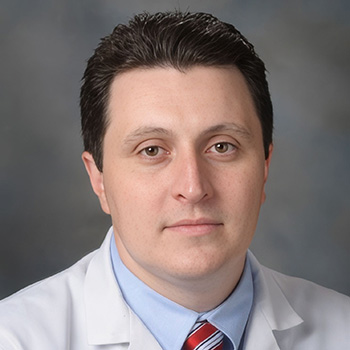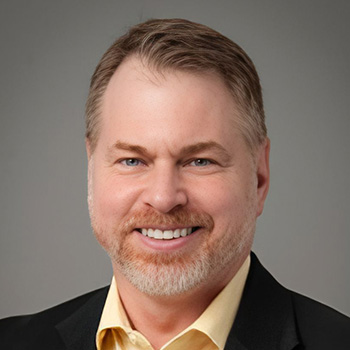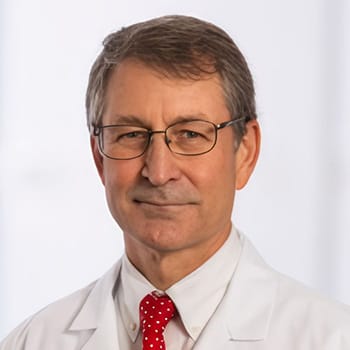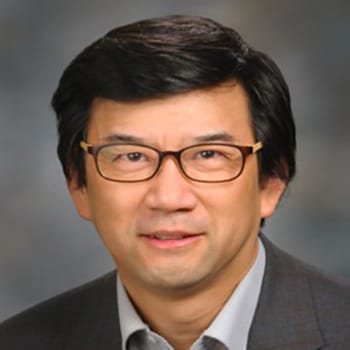Program Committee

Robert James (RJ) Cusimano BSc MSc MD FRCSC FACS
Division of Cardiovascular Surgery, Peter Munk Cardiac Centre
Professor, Department of Surgery, University of Toronto
The David and Stacey Cynamon Professorship in Cardiovascular Innovation and Education Department of Surgery, University of Toronto
Dr Robert James “RJ” Cusimano is a cardiac surgeon at the Peter Munk Cardiac Centre at the Toronto
General Hospital and is a Professor of Surgery at the University of Toronto. He is the inaugural holder of
the Cynamon Professorship in Cardiovascular Innovation and Education at the Peter Munk Cardiac
Centre. In addition to his clinical duties, he has been deeply interested in education. He was the
programme director of Cardiac surgery at the University of Toronto and at the Royal Collage of
Physicians and Surgeons of Canada, helped in the development and implementation of the competency,
based curriculum now in existence in Canada. He has taught both within the University, Canada and
internationally, having either taught or helped in programme development in China, Ethiopia, Sri Lanka,
Brazil, Europe, and the US. In 2016 he conceived and held the first Toronto Cardiac Tumour Conference,
which brings the world’s experts in the field of cardiac tumours on a yearly basis. Recently, he conceived, and has been working on the INTERACT project (International Registry to Assess Cardiac Tumours), a global initiative to capture all cardiac tumours in the world. This is a multi-national, multidisciplinary endeavour which will bring centres around the world together to try to improve care and outcome in these very rare tumours. Recently he was in Africa to help develop a plan to harmonize interaction on the continent. Eventually he would like to develop a subspecialty of cardiac surgery in the area of cardiac tumours.

Steven Lawrence Cusimano BSc MD CCFP
Family Health Organization (FHO)
Hamilton Family Health Team (HFHT)
Parkdale Medical Centre

Suzanne George MD
Chief of the Division of Sarcoma, Dana-Farber Cancer Institute
Dr. Suzanne George is the Chief of the Division of Sarcoma at Dana-Farber Cancer Institute, where she is recognized as a leading expert in the clinical development of new drugs for soft tissue sarcomas, bone sarcomas, and gastrointestinal stromal tumors (GIST). She holds senior clinical roles at Dana-Farber and Brigham and Women’s Hospital and serves as an Associate Professor of Medicine at Harvard Medical School. Dr. George earned her MD from the University of Massachusetts Medical School, and completed her residency at New England Medical Center, as well as her hematology/oncology fellowship. Dr. George’s research is focused on advancing therapeutic options for sarcomas, and she has pioneered clinical trials leading to several FDA drug approvals and new standards of care, with her work incorporated into the National Comprehensive Cancer Network (NCCN) guidelines.
An internationally recognized investigator, Dr. George has led studies that have transformed the management of GIST, including the development of targeted therapies such as sunitinib and regorafenib. Her clinical and translational research also extends to leiomyosarcoma, where she collaborates on projects aimed at identifying biologic vulnerabilities and refining treatment approaches. Dr. George has held leadership roles within the Alliance for Clinical Trials in Oncology, including as Vice-Chair and Interim Group Chair, where she directed the group’s national clinical trial portfolio to support innovative research across over 100 sites. She continues to serve as a mentor and educator, shaping the next generation of sarcoma specialists and fostering a collaborative approach to clinical trials and patient care.

Vinod Ravi MD MS MBA
Department of Sarcoma Medical Oncology
Division of Cancer Medicine
University of Texas
Conference Planning Committee
Dr. Ravi is a Professor, both in the Department of Sarcoma Medical Oncology and in the Department of Genomic Medicine, Division of Cancer Medicine, The University of Texas MD Anderson Cancer Center, Houston, TX. After medical school, he earned a degree in Epidemiology and subsequently an MBA. He did his residency at Columbia University and fellowship in Medical Oncology at Roswell Park Cancer Institute, which invited him on staff. Since 2008 he has been at the MD Anderson Cancer Centre. He is the Research Director of the University of Texas Health Intelligence Platform, a Steering Committee Member of the University of Texas System Clinical Data Network and the Clinical Medical Director, Translational Research Accelerator, Department of Genomic Medicine, The University if Texas MD Anderson Cancer Center.
Guest Faculty

Andrew Bishop MD
Associate Professor
Department of Radiation Oncology
MD Anderson Cancer Center
Before appointment as faculty, he completed his training at Memorial Sloan Kettering Cancer Center (New York, NY) and MD Anderson Cancer Center (Houston, TX). Dr. Bishop has joint appointments in both the Sarcoma & Melanoma and the Brain & Spine Radiation Oncology sections. His clinical expertise relates to the treatment of sarcomas, secondary central nervous system tumours, and skin cancers using standard and specialized treatment modalities including intensity modulated radiation therapy (IMRT/VMAT), proton therapy, stereotactic body radiation therapy (SBRT), stereotactic radiosurgery (SRS), gamma knife and 3D conformal radiation (photons/electrons). In clinical practice, Dr. Bishop emphasizes a patient-centered approach to care providing dedicated time to each patient to tailor the treatment and experience to individual needs. His research interests include improving outcomes related to sarcomas and melanoma, the role and delivery of stereotactic radiation, and the adolescent and young adult (AYA) patient population. He has fostered strong multidisciplinary collaborations. The combination of his clinical research and interdisciplinary collaborations has led to many publications in peer-reviewed journals, in addition to multiple book chapters and several invited articles. Additionally, Dr. Bishop actively participates in multiple national and international organizations and helps to formulate sarcoma management guidelines.

Anthony Conley MD
Associate Professor, Department of Sarcoma Medical Oncology, Division of Cancer Medicine, The University of Texas MD Anderson Cancer Center, Houston, TX
Dr. Anthony Conley is a a clinical investigator in the Department of Sarcoma Medical Oncology at the University of Texas MD Anderson Cancer Center. My interest is in providing the best possible care for sarcoma patients. My clinical research interests involve chordoma, chondrosarcoma, rhabdomyosarcoma, malignant granular cell tumors, and gastrointestinal stromal tumors.

William Decker PhD
Professor, Department of Pathology & Immunology, Baylor College of Medicine
Dr. William Decker is a Professor in the Department of Pathology & Immunology at Baylor College of Medicine. Dr. Decker received a B.S. in Biology from Tufts University and a Ph.D. in Molecular in Human Genetics from Baylor College of Medicine in 2001. Following early career work in industry, he spent seven years as Senior Research Scientist in the Department of Stem Cell Transplantation and Cellular Therapy at the University of Texas M.D. Anderson Cancer Center where he studied basic dendritic cell biology, transplant immunology, and developed cell-based treatment strategies for cancer. In 2011, Dr. Decker joined the faculty at Baylor College of Medicine, establishing a research group that studies basic dendritic cell immunobiology and maintains basic, translational, and clinical immunotherapy research programs for a variety of different cancers. He holds multiple federal R01 grants to study basic mechanisms of dendritic cell immune governance and previously served as a permanent member of the III NIH R01 study section. He has been a sponsor or investigator on four INDs, an inventor of eleven patents, and serves as a scientific and medical advisor of Diakonos Oncology, a clinical-stage immuno-oncology company entering pivotal trials for vaccine immunotherapy of glioblastoma.

Johannes Koen MD MBChB MSc(ClinEpi) MMed(Cardiothor) FC Cardio (SA)
Clinical Fellow, Cardiovascular Surgery
Peter Munk Cardiac Centre
Toronto General Hospital
John Koen is a Cardiac Surgeon from Cape Town, South Africa. He is the integrated Heart Transplant and Mechanical Circulatory Support Fellow, currently based at Toronto General Hospital.

Seth Pollack MD
Director of the Sarcoma Program, Lurie Cancer Center
Steven T. Rosen Professor of Cancer Biology, Feinberg School of Medicine, Northwestern University
Dr. Seth Pollack, MD is an expert sarcoma specialist serving as the Director of the Sarcoma Program at the Lurie Cancer Center and the Steven T. Rosen Professor of Cancer Biology at the Feinberg School of Medicine at Northwestern University. As a physician-scientist, he is developing novel immunotherapies for patients with advanced sarcoma and leveraging unique features of sarcoma immunobiology to improve immunotherapy for all patients with cancer. His work targeting the cancer-specific protein NY-ESO-1 using adoptive cellular therapies and vaccines has led to important breakthroughs in our understanding of the sarcoma immune microenvironment. He has led multiple, important, early-stage sarcoma immunotherapy trials and his publications have helped to shape the current state of sarcoma clinical care. He is currently collaborating with veterinarians and organizations like the Canine Cancer Alliance ( https://www.ccralliance.org ) to try and learn lessons that might apply to humans from pet dogs who naturally develop sarcoma. Our lab website is: https://sites.northwestern.edu/thepollacklab/
As a clinician and sarcoma expert, he has chaired sessions at the annual meetings of the American Society of Clinical Oncology (ASCO), the Japanese Society for Medical Oncology (JSMO), the Connective Tissue Oncology Society (CTOS) and the British Sarcoma Group. Some of his awards have included the V Foundation Translational Award, the Alliance for Cancer Gene therapy, grants from the Sarcoma Foundation of America and the SARC Career Development Award. His research is funded by the National Institutes of Health and the Department of Defense. He has twice been featured in the widely followed audio/cd/podcast series Research-to-Practice and he was lead author of the invited review on sarcoma immunotherapy for the Journal of Clinical Oncology. He is on the National Leiomyosarcoma Foundation Executive Committee and sits on the NCCN guidelines panels for both soft tissue sarcomas and gastrointestinal stromal tumors. During his 12 years treating patients with sarcoma at the University of Washington and Fred Hutchinson Cancer Research Center, he received the Sig Kohl Legacy award from the Northwest Sarcoma Foundation for an “outstanding and enduring contribution to the care of sarcoma patients in the Northwest.” He is thrilled to be living in Chicago and serving at the Lurie Cancer Center.

Michael Reardon MD
Chief of the Division of Cardiothoracic Surgery, Baylor College of Medicine
Chief of Cardiac Surgery, Houston Methodist Hospital
Dr. Michael Reardon, MD was born in Houston Texas in 1953. He married his wife, Robin, in 1975 and they have two daughters and four grandchildren. He attended Baylor College of Medicine, did his general surgery residency under Dr. Michael DeBakey at Baylor and cardiothoracic residency under Dr. Denton Cooley and the Texas Heart Institute. He joined the staff of the Hoston Methodist Hospital in 1985 and has spent his entire career there. He has served in most staff positions including the elected president of the medical staff. He was the first chief of the division of cardiothoracic surgery at Baylor after the retirement of Dr. DeBakey and the first chief of cardiac surgery at the Houston Methodist Hospital. He has over 1,000 publications including peer reviewed, published abstracts and invited publications. He has given over 1,000 national and internationally invited presentations. He has been invited as a visiting professor and operating surgeon on five continents. He has served as the national surgical principal investigator on 11 trials and as national study chair on 4 more. He maintains an active clinical practice as well as a research program. His clinical and research interests include structural heart disease, aortic surgery, transcatheter procedures and cardiac tumors.

Aparna Subramaniam MD, MPH, PhD
Senior Clinical Research Scientist
Sarcoma Medical Oncology Department
The University of Texas MD Anderson Cancer Center
Dr. Aparna Subramaniam is a senior clinical research scientist in Sarcoma Medical Oncology, Division of Cancer Medicine at the University of Texas MD Anderson Cancer Center in Houston, TX, United States.
She graduated with a medical degree from the Rajiv Gandhi University of Health Sciences in Bangalore, India. She then pursued a Masters in Public Health, followed by a doctoral program at the University of Texas Health Science Center in Houston. Her doctoral thesis was on the epidemiology, clinical characteristics and genomic profile of primary cardiac angiosarcoma. After graduating with a PhD, she is now a senior clinical research scientist focusing on designing and implementing clinical trials and translational studies for angiosarcoma and other rare sarcomas.

Dinesh Thavendiranathan MD
Dr. Dinesh Thavendiranathan is a cardiologist at the Peter Munk Cardiac Center and a Professor of Medicine at the University of Toronto. His research involves the development of strategies to reduce cardiovascular disease in patients with cancer. He is the Director of the Ted Rogers Program in Cardiotoxicity Prevention and holds a Canada Research Chair in Cardio-oncology.

Prapassorn Thirasastr MD MSc
Research Scientist
Sarcoma Medical Oncology Department
The University of Texas MD Anderson Cancer Center
Dr. Prapassorn Thirasastr is a research scientist in Sarcoma Medical Oncology, Division of Cancer Medicine at the University of Texas MD Anderson Cancer Center in Houston, TX, United States.
She graduated from the faculty of medicine, Chulalongkorn University in Bangkok, Thailand. She graduated from King Chulalongkorn Memorial Hospital, Bangkok, Thailand and received board certification in Internal Medicine and Medical Oncology from Thailand in 2016 and 2018, respectively. Dr. Thirasastr had practiced as a medical oncologist in Thailand for 2 years before completing her 2-year post-doctoral fellowship training in MD Anderson Cancer Center in the Sarcoma Medical Oncology department and another 2 years training in the Translational Molecular Pathology department. She is now a research scientist focusing on both clinical and basic science research.

Michael Wagner MD
Medical Oncology, Dana-Farber Cancer Institute
Dr. Wagner received his MD degree from Harvard Medical School, and completed residency at Mt. Sinai Hospital in New York and fellowship in medical oncology at the University of Texas MD Anderson Cancer Center. Prior to joining Dana-Farber in 2023, he was a member of the faculty at the University of Washington and Fred Hutch Cancer Center, where he was also the Director of Sarcoma Clinical Research. His research interests include angiosarcoma and other vascular sarcomas, and immunotherapy and targeted agents for bone and soft tissue sarcomas.

Breelyn A. Wilky MD
Director of Sarcoma Medical Oncology, University of Colorado
Dr. Breelyn A. Wilky, MD is a sarcoma medical oncologist and clinical trialist with research interests in immunotherapy, targeted therapy and precision medicine, and early phase drug development. She is Associate Professor and Director of the Sarcoma Program at the University of Colorado School of Medicine, and also holds the The Cheryl Bennett and McNeilly Family Endowed Chair in Sarcoma Research. As the Deputy Associate Director of Clinical Research for the University of Colorado Cancer Center, she leads the investigator-initiated clinical trials committee to help advance novel research to the clinic. Her laboratory studies the tumor and immune microenvironment of sarcomas, to identify new drugs that boost the immune system for future clinical trials.
Dr. Wilky received her undergraduate degree in Biology and Music from Bates College in Lewiston, Maine, and attended medical school at the University of Medicine and Dentistry of New Jersey – Robert Wood Johnson Medical School in Piscataway, New Jersey (now Rutgers Medical School.) She received her MD with Distinction in Research. She then completed the Osler internship and residency in Internal Medicine at The Johns Hopkins Hospital in Baltimore, Maryland, and stayed on to complete her fellowship in Medical Oncology. Her honors and awards include election to the Alpha Omega Alpha Honor Medical Society, an ASCO/Conquer Cancer Foundation Young Investigator Award in 2012, the 2017 Outstanding Clinical Researcher of the Year at Sylvester Comprehensive Cancer Center at the University of Miami, and is the prior recipient of an American Cancer Society Mentored Research Scholar Grant.

Cassian Yee MD
Dr. Cassian Yee is a physician-scientist and cancer researcher at the University of Texas MD Anderson Cancer Center.
He is a member of the American Association of Cancer Research, the American Association of Immunologists, and the American Society of Clinical Oncology. He is also a member of the Ontario Institute of Cancer Research External Advisory Board. He is a pioneer in adoptive cell therapy (ACT) immunotherapy, which involves enhancing a patient’s anti-cancer T cells and then reintroducing them into the patient. He has developed specialized forms of ACT for treating cancer.
Dr. Yee is a professor in the Department of Melanoma Medical Oncology and the Department of Immunology at MD Anderson. He is also the director of the Solid Tumor Cell Therapy Program and the co-director of the Adoptive Cellular Therapy Platform.
He focuses on developing immune-based therapies for cancer. His lab’s research areas include T cells, tumour immunity, and immunotherapy.
